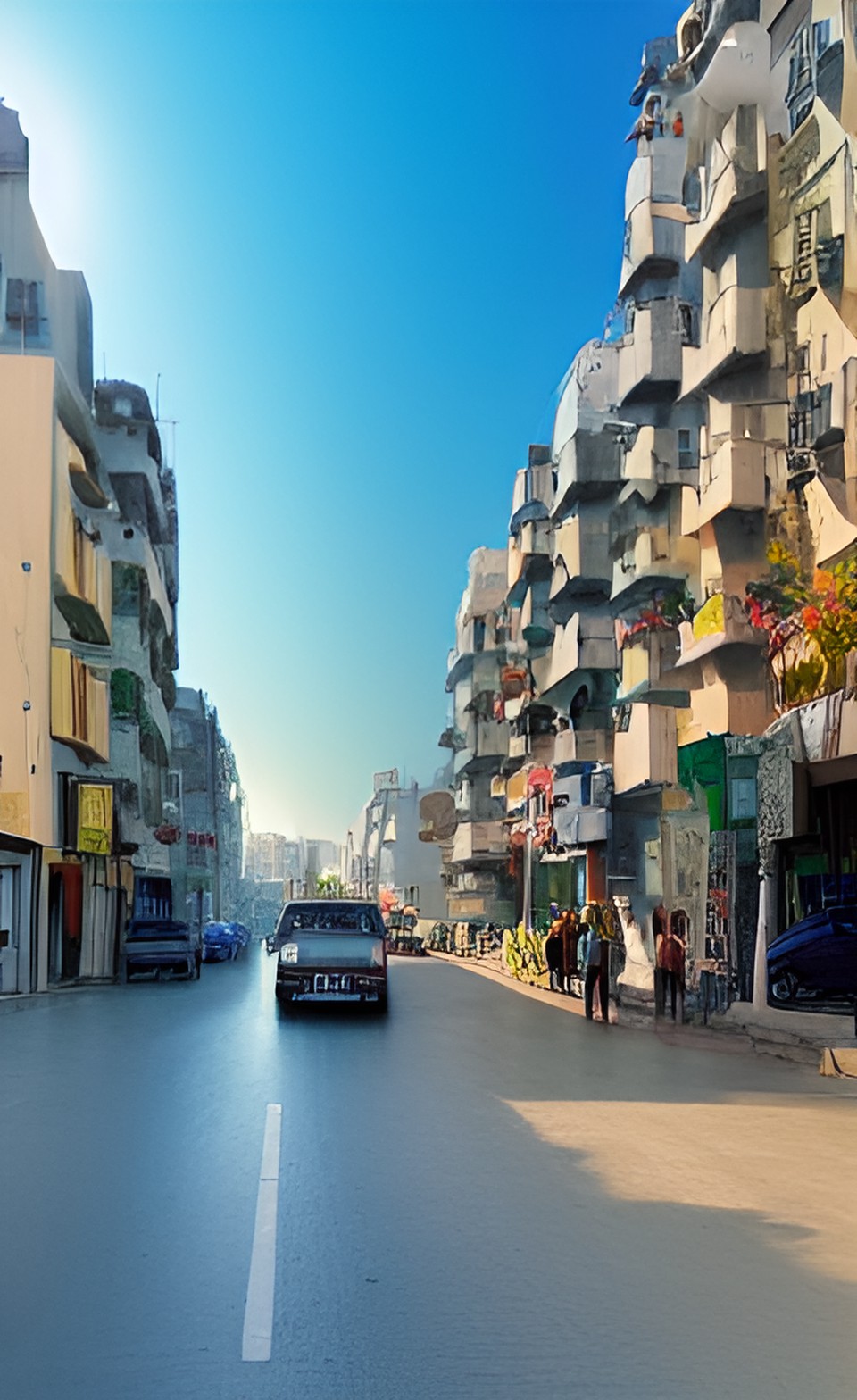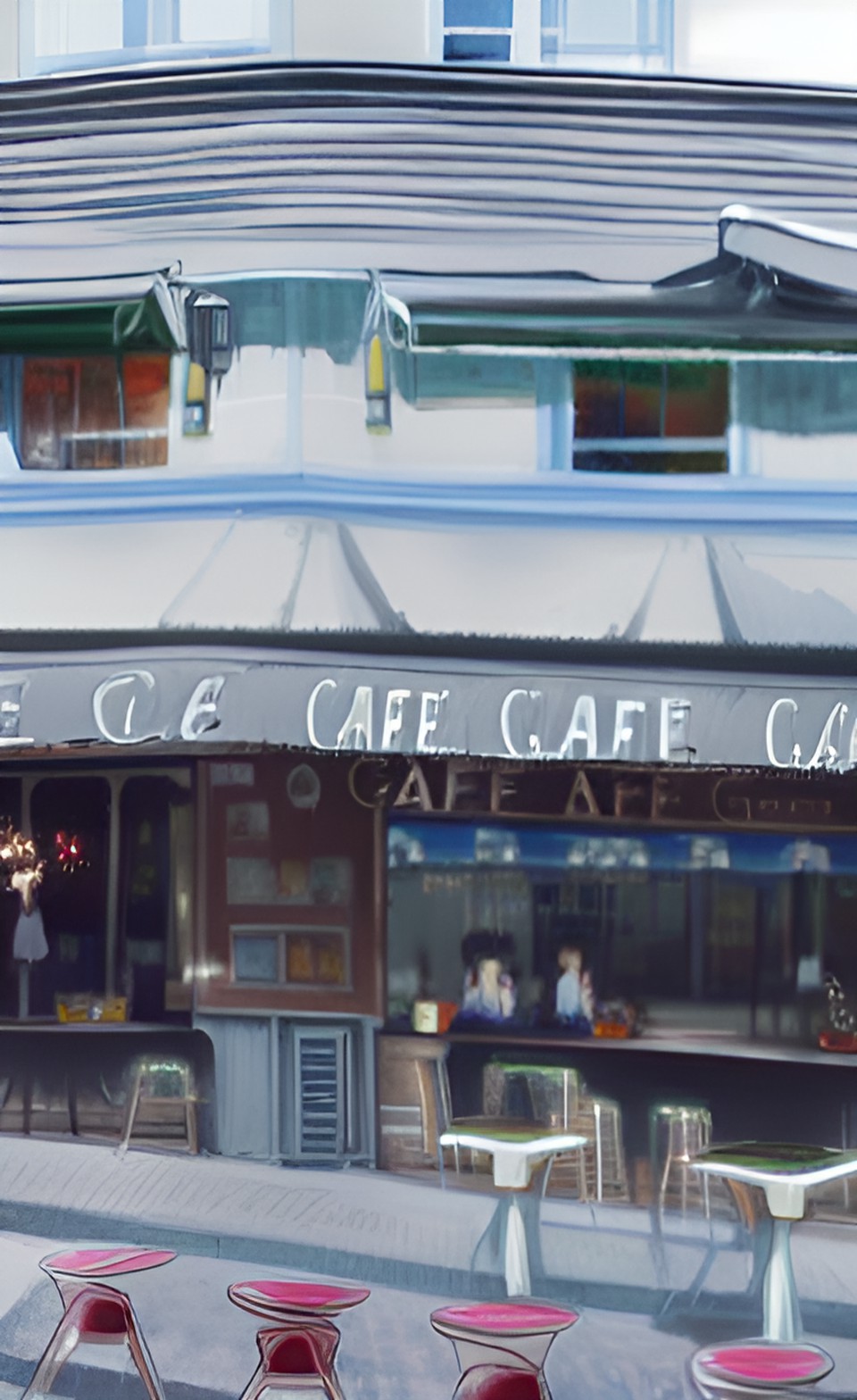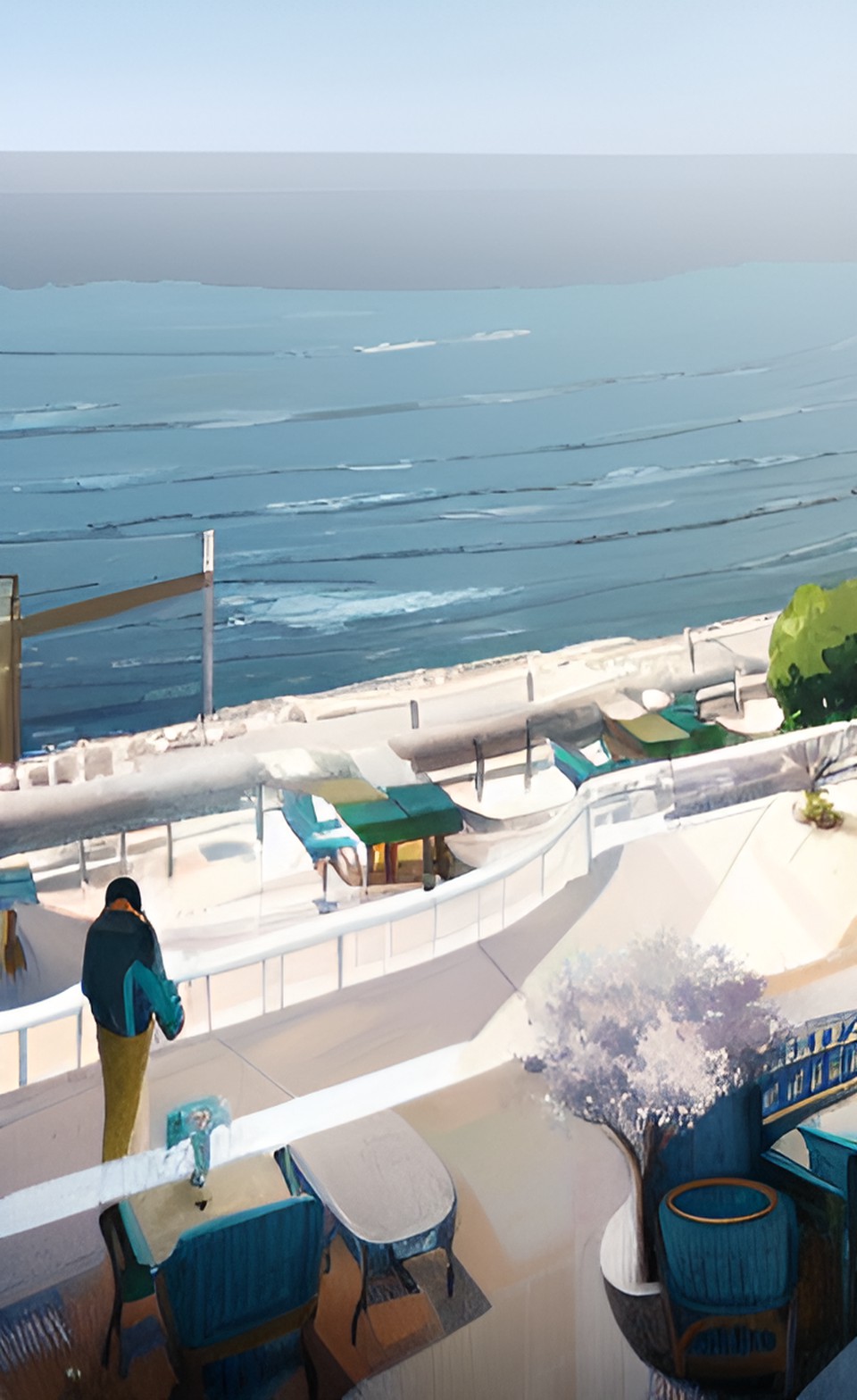Gorilla Republic: Mapacha: Mughamarat f'almaghrib: Part 12
FEB 17, 2023

Tangier. Wild. Unrepentant. Rebellious. Graceful. The desired 'Bride of the North'. There were numerous words to describe this fashionable mecca. The city was stationed on the northwest end of the bay with the Strait of Gibraltar right up to the north. Its position between two hills made it a suitable natural harbour. Despite its role as the gateway to Europe, it was understandably richly cultivated with Moroccan culture. This allure had drawn a veritable set of actors, producers, and directors. Cinematic productions were churned out by the dozen. However, in great disparity, a significant number of its local populace had been exiled from the picturesque Rif Mountains by poverty and hunger and now barely survived in this so-imagined utopia.
Being a bridge between two continents, it found its harbour frequently graced by ships from the French and Spanish coasts. With that convenience, the polemic history of its International Zone Status imposed by imperial powers in the guarantee of the treaty of Algeciras in 1923, the city had attracted a colourful coterie of temporary and permanent residents. Celebrated for its freedom, it drew disillusioned army deserters who eventually became mercenaries, the idle rich in pursuit of an exotic adventure, deserted brides and widows in search of a second or even third prospect of love, adventurers in search of a new unconquered quest to claim, traffickers, ladies of the night, cabaret dancers, gamblers, degenerates, literary kingpins, diplomats, spies, merchants, artists. . . it was endless. They were all in Tangier and their stories were infinite. With the meld came the kaleidoscopic tapestry of crime, illicit sex, drugs and decadence. To operate in Tangier, even unsuccessfully was an opportunity not to be undermined, with the assumption that you did not find yourself ensnared in a criminal plot or absorbed in a kif den.
The gang knew that in this world with obscene displays of wealth, it would be easy to find a key player, perhaps a gold changer or even a jeweller, basically, someone in the rare metal trade who had the will and ability to lighten their load without many questions. So they took in the mix of modern and traditional, as the Mercedes shambled onto Boulevard Pasteur. Banou found herself astonished. To her, Tangier was a backwater that staggered in filth and poverty, but here it was; a Mediterranean beehive inflamed with frenetic bustle. There were far more shops than she had imagined that had ostentatious exhibitions. The taxi stopped at the main entrance of the hotel and they were glad to finally stand outside. Almost immediately, the rich odour of salts washed over them. Then they realised that it was suddenly very noisy. Vehicles roamed the streets hastily and the audible sounds of traders and street hawkers carried into the streets. Carpets, draped over balconies fluttered in the ocean draught. Young men in slick suits eyed them and this intimidated Banou for a moment before the taxi driver explained that they were guides is search of a hustle.
Here they were at The Rembrandt, a relatively young hotel, given the history of the city. Owned by the reputed Toledano family, it had found fame and success in part due to its prime location in the heart of the city and also because of its majestic views of the Strait. It was popular amongst tourists and businessmen, and despite all this, it managed to retain an urbane air of discretion, mostly due to the fact that it was a family-run hotel.
The lively doorman eagerly welcomed them and then set their luggage onto the pavement before he quickly hustled it into the reception. Once inside, Gwafa's slicked his tongue at the attractive receptionist as an amused Mapacha watched him.
"Bonne journée," she greeted them. "Bienvenue à l'hôtel Rembrandt."
Gwafa flashed his trademark crooked smile and she stifled a giggle.
"Ça va. We are looking for four rooms for a few nights," Gwafa explained.
"No problem. This is your party?" the receptionist asked in her richly accented voice.
"Yes," Gwafa responded.
"No problem."
Gwafa craftily negotiated for a favourable rate as he innocuously flirted with her. She struggled to conceal her smile, and as he counted the deposit, he murmured in French and she deeply blushed.
"Passports please," she said with strained composure.
They handed them over, and she quickly registered them and then handed them back. She then dinged the bell to summon the porter and motioned to him with two fingers. Second floor. As carefully as she could, she handed Gwafa four oval-shaped brass keyholders with the hotel name etched on the front with a crude sharp hotel number stamped on the back.
"Merci," he said and half bowed.
Behind her Manhattans, Banou rolled her eyes. Men.
"We meet down here in an hour, then we can go get something to eat," Mzee Tembo said as they walked up the stairs.
He knew that they needed to get a feel for the city.
The rooms were quite similar in decor and design to the ones of Hotel Balima and were sedately coloured, and this impressed Mapacha a lot more. It was a quick nap and a shower before he found himself next to an overeager Banou and they waited for Gwafa and Mzee Tembo to arrive.

They entered the first cafe they found, which was a few minutes away. This was Le Gran Cafe Paris, which was quite popular at the busy Place de France. The restaurant was full and Mzee Tembo would have rather walked away, but there was a charm to it.
"This building was among the first built in the walled city," Gwafa explained.
Inside, a stale cloud of tobacco smoke hovered over the patrons, a mix of locals and tourists and it seemed as if there was a competition to smoke. Mzee Tembo irritated, wrinkled his nose at the foul fume and wanted to protest but that would have been moot. They were already inside. You could almost tell who the thespians were. Many favoured the restaurant in search of some sort of divine inspiration. There were social climbers who found it glamorous to enjoy their meals here, travellers who had finally made a pilgrimage to the cafe as the great authors from the golden age had, and locals who enjoyed the meals and ambience. Banou detected their snobbishness almost immediately.
The waiter positioned them at a central table and as they felt quite at home, Banou and Gwafa joined the smokers, and this infuriated Mzee Tembo. The waiter returned and plonked menus before them and strode off, only to return shortly with an ashtray. They quickly placed their orders. Banou, already homesick for an island meal picked the closest best, a fish chermoula. Gwafa was straightforward with his selection of Djaj Mhammer as was Mapacha who took a gander at the Tagine with Khobz, curious as to why Gwafa often picked this. Mzee Tembo went for a Rfissa, uncertain of what it was, but at this point, he really did not care. As they waited, the waiter served them mint tea and Banou and Gwafa lit their second cigarettes in tandem. The atmosphere in the cafe made them want to chain smoke. It was a half hour before the broad china was set before them with the meals they ordered. The rich aroma whetted their appetites and they heartily dove in. Gwafa enjoyed it more due to the similarities in their culture and asked for a Kronenbourg to wash it down. The others selected fresh juice. With the meal done, Gwafa asked for another beer and he and Banou were on their guilty thirds as the afternoon played out. Mapacha had quietly gauged the individuals in the cafe and he pondered about their attitudes.
"Hey Gwafa," Mapacha asked, "why are these people being so snobbish?"
Gwafa smiled as he puffed out a thin wisp of smoke between his lips.
"Most of them are ignorant, but you also need to recognise the cafe. Many famous people spend time here."
Banou laughed. The whole setup seemed ridiculous to her.
"Right, let's get started," Mzee Tembo said, glad that his Omega had finally struck the hour.
He quickly paid the bill and led them out of the cafe, pleased to be done with the smoke and the snobs.
"We need to find a phone and make the call."
"Why not do it back at the hotel?" Banou asked.
"Cause we are staying there and it could be traced back to us. Let us find another hotel and do this."
They walked down the road and shortly spotted another grand hotel with its prominent sign displayed on its facade. The El Minzah. This was another one of those European-owned hotels. The Spanish Moorish design from a bygone colonial era had come about on the instructions of John Crichton-Stuart, the fourth Marquess of Bute, a British aristocrat, avid ornithologist and accomplished businessman who had accrued a great micro empire in the international zone of Tangier.
"You guys wait here. There is no need to announce ourselves, and it makes it easier," Gwafa offered.

He was right. His Algerian looks, necessary in this situation, blended in better than the Afro-island looks of the others who would have stood out as tourists, and would have been easily identifiable if the thing fell apart. He knew that he could get away with both French and bastardised Darija, and would appear as one of their own.
"Mzee Tembo, you have the number?"
"Here," he said, as he handed over the card Ossi had given him with the number scribbled at the back.
Gwafa entered the dated hotel and proceeded to the reception.
"Service de téléphone?"
The receptionist pointed him to a small office. "Allez dans ce petit bureau."
"Merci."
He walked to the small office and found a veiled Moroccan lady.
"Salaam sister. Telephone?"
"Salaam. Local or international?"
"Local."
"One Dirham."
Gwafa laid a five dirhams note on the table and picked the receiver, took the card Mzee Tembo had given him and dialled the number. A moment later as the call got routed through the exchange, he heard the faint dial tone which lasted for almost half a minute, and then a weary female voice answered it.
"Salaam?"
"Salaam. May I speak to Lounis or Diae?" Gwafa asked.
"Who is calling?" the voice on the other end inquired in heavily Arab-accented English.
"My name is Gwafa, I am a friend of Ossi from Rabat, he asked me to call this number when I came to Tangier and ask for Lounis and Diae."
"They are not here at the moment, may I take a message?"
"No. Where can I find them?"
"I'm not sure. Maybe check around Cafe Hafa, they usually hang out there. If you ask anyone, they will know where to find them."
"Aha. OK. Thank you."
Gwafa hang up and left the bureau and did not bother to pick up his change. At the reception, he asked for directions to Cafe Hafa.
"It's not far. You can walk there and it should take you around fifteen minutes or you could take a taxi."
The receptionist tried to direct Gwafa. Meanwhile, the lady in the telephone bureau rushed out with Gwafa's change in her hand.
"Excuse me Monsieur. You forgot your change."
She handed him the coins.
"Thank you."
Gwafa spotted a brochure map of Tangier on the receptionist's desk, and he picked it up.
"How much for this?"
"No charge."
He spread the map out and the receptionist marked an 'X' to point out their location and an 'O' to direct them to the cafe.
"Thanks," Gwafa said as he placed a five dirhams note into the white-gloved palm of the receptionist.
He walked out and joined the others on the street.
"I did not get them on the telephone, but the lady who answered said we can check for them at a cafe called Hafa. We can walk it. It's about fifteen maybe twenty minutes."
Gwafa unfurled the map and showed them where they were and where they needed to go.
"Let's go," Mapacha said as he led the way.
Banou was not keen on a walk in the humidity of Tangier. Her afro would frizzle and deflate and this always annoyed her. However, she quickly returned to the mindset that this was a business trip and the stakes were pretty big. They walked down to Place du Grand 9 Avril 1947, a noted location where Muhammad V declared what would become the 'Tangier Speech', a keynote that was instrumental in the independence of the country. As they trekked, they came across a guerrab who had slung an inflated goatskin on his shoulder and noisily dinged a bell to attract walkers.
"Le guerrab, porteur d’eau," Gwafa told the others. "He sells drinking water."
Past that and outside the shops, there were impromptu stands set up while young boys run amongst the crowds and targeted individuals who looked foreign.
"You want to change your currency sir?" one of them asked as he rushed to Mzee Tembo and pointed to a man behind one of the stands in a dark grey-striped suit with a cigarette who waved them over.
"La!" Gwafa told him.
"He will give you a good rate," he said, as he switched and tugged on Banou's hand. "Or maybe you want a gold watch? Good price. Real gold."
She grabbed it back furiously and they continued their walk as they ignored the kid's sales pleas. Soon they were through the Gran Socco, and after nearly twenty minutes, they found themselves before a sign that read 'CAFE HAFA FONDE 1921' at the mouth of a narrow doorway that led to the ultra-famous waterfront cafe.

The iconic eccentric rustic cafe, opened in 1921 by Ba Mohamed, had been carved out of a bluff into many-layered terraces with a central staircase that faced the Atlantic. On them were makeshift tables and chairs. On a clear night, you could see the distant lights of Tarifa across the Strait. Seated on the chairs, young Moroccans and a couple of tourists enjoyed their mint teas and coffees while others smoked cigarettes and hashish as they watched the ships and boats on the waterway.
"This place is incredible," Banou commented.
Mzee Tembo turned to Mapacha.
"You watch our backs. Banou, you are the runner and no lip this time. You have the samples?"
She patted the strained back pocket of her denim jeans.
"Right here."
"OK. Show time."
Gwafa followed one of the waiters into the kitchen which stunned the staff.
"Hey, you can't come here," the waiter yelled at him.
"Salaam. Sorry, brother. I am looking for someone."
"Not here! Not here!"
"But I was sent here."
The waiter looked harassed, had lost his patience and eyed him and then asked, "Who are you looking for?"
"Lounis and Diae."
The waiter shrugged his shoulders.
"Oh, those two? What do you want with them?"
"Some business."
He warily eyed him again.
"Stay away from those two if you want to live a long and healthy life."
"But I must find them, it is important."
Mzee Tembo tried to listen from around the corner, uncertain if Gwafa had made any headway.
"Wait outside," the waiter told Gwafa. "I will find someone who will take you to them."
"Thanks."
"We wait outside," he told Mzee Tembo as he returned to the doorway.
They waited for almost five minutes before the waiter returned with a young man clad in a white shirt, blue pants and a pair of brown leather sandals.
"Pay him five dirhams when you get there."
"Thanks," Gwafa said.
"Follow me," the young man told them.
He took them back into the main road and then round the cafe.
Mapacha and Banou followed from a distance as they crossed the main road and then down towards the port. At the beach, the young man pointed to two guys that were seated on the sand.
"That is them. My five dirhams?"